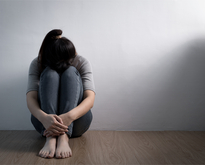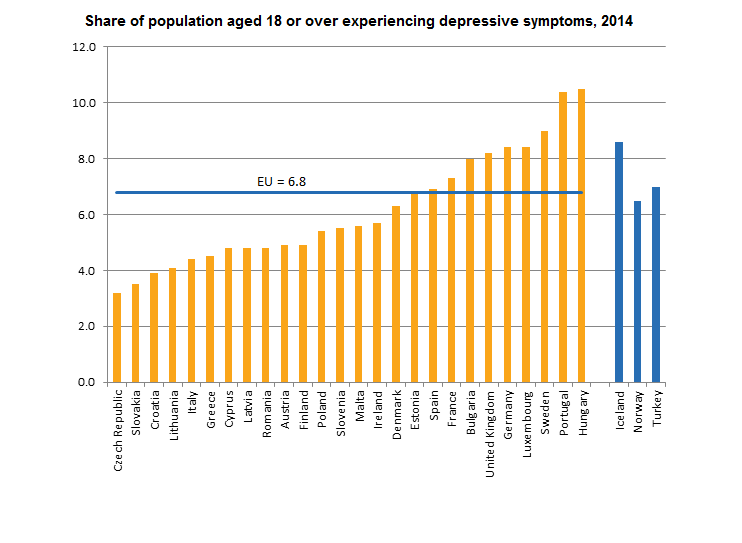6.8% of the adult population (18 years and over) in the EU report experiencing current depressive symptoms. 2.9% say their symptoms are major. Depression causes persistent sadness, a loss of interest in activities that you normally enjoy and an inability to carry out daily activities. According to the United Nations health agency, depression is the leading cause of disability worldwide.
The Member State with the largest share of population reporting depressive symptoms is Hungary (10.5%), followed by Portugal (10.4%) and Sweden (9.0%). These symptoms are less common in the Czech Republic (3.2%) and Slovakia (3.5%).
Women seem to be more affected than men: 7.9% of women in the EU report experiencing current depressive symptoms against 5.5% of men.
Higher levels of education are tied to lower rates of depressive symptoms. The rate for the population with primary or lower secondary education is more than double that of the population with tertiary education.
There is also some correlation between income and depressive symptoms: in all countries, people in the lowest income quintile more often report experiencing current depressive symptoms than in the highest quintile. At EU level, the rate of depressive symptoms in the lowest income quintile is three times greater than that in the highest income quintile.
Belgium and the Netherlands: data not available
For more information
Source dataset on current depressive symptoms by sex, age and educational attainment level
Source dataset on current depressive symptoms by sex, age and income quintile
Eurostat website section on health status and determinants


